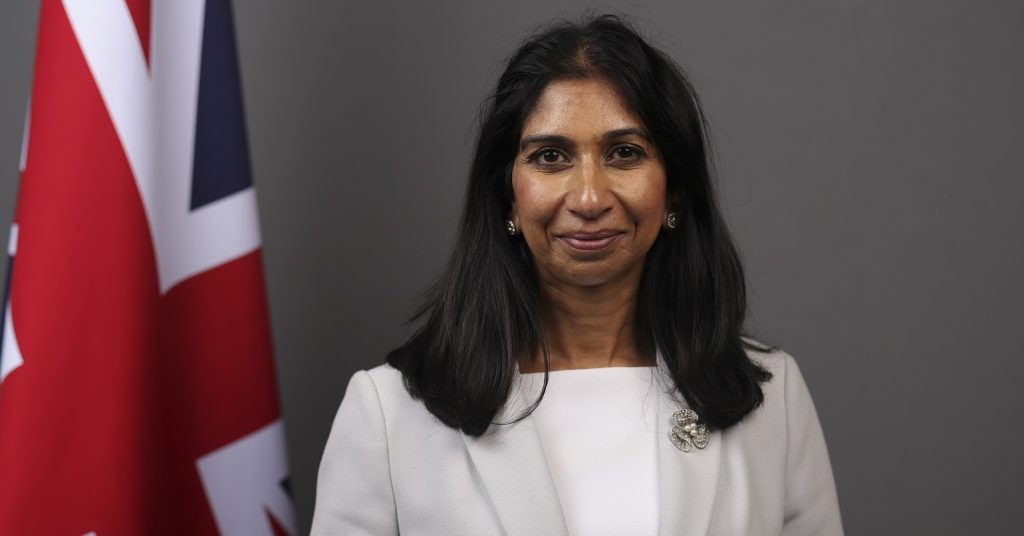The UK is sliding towards Russian-style authoritarianism

A few years back, I was the first person to raise a debate on facial recognition in Parliament. I recognised it as one part of a wider package of changes that are rapidly dismantling parliamentary democracy in the UK.
When you combine facial recognition with the draconian laws passed in the Police Act and the Public Order Act, then a full scale clamp down on any form of effective protest is now possible. We are a very short step away from what happens in Russia on a regular basis, as the authorities attempt to stifle protests.
The UK police charged with combating “extremism” now have similar powers to the Russian police combating “extremism”. The differences are dependent upon which police officer interprets the law; the vigour of those groups like Big Brother Watch who seek to defend our rights and the spirited independence of those “lefty lawyers” the government complains about.
In Russia, around 2000 protestors against the war in Ukraine have been arrested, or detained, using facial recognition technology. These include people visited at home and questioned after a peaceful protest – this has also become standard practice by the Met Police who trawl through video footage to identify people they wish to arrest.
Most importantly, facial recognition is now used to those detain those on their way to a protest after being spotted by the Metro camera system. This mirrors the new laws in this country that allow the authorities to ban protestors ahead of demonstrations by issuing Control Orders, or the new Serious Disruption Prevention Orders. The Met Police also have access to much of the TfL camera network and yet, only the Green Party have ever pressured for constraints and safeguards to be put in place.
As with the recent false arrests on Coronation Day, mistakes will happen and facial recognition has major flaws and prejudices. The police have been trying it out in London and Wales. Despite scanning more than 560,000 people, the equivalent of the population of Belfast over the past five years, only 57 people were correctly identified while the technology got it wrong 90 times.
These deployments of facial recognition have turned our city streets into mass-scale police line-ups with hundreds of thousands of innocent people subjected to biometric identity checks. Yet, seven years after UK police first rolled out this invasive technology there has still been no democratic consent to live facial recognition biometric surveillance in Britain. No legislation has been passed, or even seriously proposed to approve or ban the use of live facial recognition technology in the UK. Instead, police operate in a grey area enabled by a democratic deficit to use rights-invading technology with minimal oversight.
My big concern is that we slip into the habit of contesting each of these new laws and technologies in isolation, rather than seeing the big picture of what this government is out to achieve.
The ban on strikes, the granting of legal immunity to undercover officers who spy upon campaigners and voter suppression are all part of our rapid slide into an authoritarian country. The clamp down on opposition goes hand in hand with the skeleton bills passed in recent years that give Ministers increasing powers to delete or change our laws without recourse to MPs, or the Lords. The EU Retention Bill is the biggest of these and gives Ministers control over thousands of bits of legislation.
However, most relevant to facial recognition and protest is the Statutory Instrument they are pushing through to define serious disruption as anything that is “more than minor”. This gives the police huge discretion to decide that any protest is more than minor disruption. It also is the first time ever that Ministers are using secondary legislation to directly reverse a decision voted on by Parliament. The Lords rejected that definition a few months ago. The government lost the vote and now a Minister is trying to decide the law and over rule Parliamentary democracy – that is wrong. That is why I am putting a Fatal Motion to stop it on 13 June. The Lords don’t normally stop secondary legislation but this is unprecedented and I hope others see that.
Jenny Jones is a Green Party member of the House of Lords
PS. We hope you enjoyed this article. Bright Green has got big plans for the future to publish many more articles like this. You can help make that happen. Please donate to Bright Green now.
Image credit: Simon Dawson / Number 10 – Creative Commons




Where is everyone who should be opposding this? The Tories are about to turn the UK into a dictatorship and political parties are sleeping on the job!
Which Tories? The Blue ones under Sunak or the Red ones under Starmer (he’s made it clear he’s keeping that bit of authoritarian dreck, probably because he knows his fanatical devotion to neoliberal bullshit will see his popularity nosedive just like Emmanuel Macron over in France)?
Good for Jenny Jones one of best From Ben quirkyqualio 66